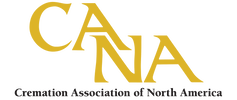|
As 2022 begins, there continue to be evolving demands competing for your time and energy. The last two years have seen some significant changes and developments in many areas of the industry and the laws which govern it. As with the beginning of every new year, it remains important to refresh and improve our habits. It is not too late to resolve to accomplish the following risk management and legal checklist items and establish a new routine for years to come. 1. UPDATE AND REVIEW CURRENT GOVERNING LAWS AND REGULATIONS. Regardless of your role in the industry, it is important to understand the current laws and regulations that govern your work. The COVID-19 pandemic has led to the implementation of many new laws and regulations which may impact your business. Put aside the necessary time to review the federal, state, and local laws and regulations which affect your daily operations. While right to control final disposition and cremation authorization issues continue to dominate legal complaints against people and businesses in this industry, there have been many new developments in the area of labor and employment, employee safety, and non-discrimination laws which may impact your business. If you have difficulty finding the statutes and regulations governing you and your business, try searching the web sites for your state association or licensing board – they often have links available. Federal OSHA and EEOC web sites, and their state counterparts, also provide significant information and updates. 2. EDUCATE AND TRAIN STAFF ON ANY NEW LAWS OR REGULATIONS AFFECTING YOUR BUSINESS. Keeping yourself updated on new laws or regulations is just a first step. The next is to educate and train your staff and co-workers on what you have learned. Hold a “lunch and learn” with your team and give everyone the tools to succeed. Education and training are vital steps to every risk management and compliance program. 3. UPDATE YOUR FORMS TO BRING THEM INTO COMPLIANCE WITH ANY LAW CHANGES. Out of date, non-compliant forms are an easy target for regulators and plaintiffs’ attorneys alike. Confirm that your form documents include all the required notices, consents, and disclosures. Consult with an attorney if you have any questions regarding current legal requirements. 4. EDUCATE AND TRAIN STAFF ON THE CHANGES IN YOUR FORMS. Compliant forms are important, but the persons who use them every day must understand how to utilize them to the fullest. Avoid the problems caused by improperly filled out forms. If done and utilized correctly, forms often provide the best documentation in defense of legal complaints. 5. REVIEW AND UPDATE YOUR OPERATIONAL POLICIES AND PROCEDURES. Regulatory compliance is critical to a successful operation. So, too, are human resource policies, and so much more. If you need assistance in your review, CANA has partnered with Cremation Strategies & Consulting to offer a program which will help you compile operational policies and procedures customized for your business. 6. REVIEW AND UPDATE YOUR EMPLOYEE HANDBOOK (INCLUDING SOCIAL MEDIA POLICY). Employment issues are a prevalent headache across all industries and business models. Address common concerns in your employee handbook, so that everyone is on notice of the standards to which they will be held accountable, including:
7. EDUCATE AND TRAIN STAFF ON YOUR POLICIES AND PROCEDURES. Periodic training and review of operational and employment policies and procedures are critical. There cannot be compliance without your employees first understanding your expectations and standards to which they will be held accountable. 8. MEET WITH YOUR INSURANCE AGENT OR BROKER. Make sure your insurance agent or broker understands your business. Make time for these critical discussions. Do not assume that your insurance agent or broker “just knows” because he or she has worked with you in the past. Too often there are gaps in coverage discovered when you need insurance assistance or defense to a legal claim, when it is too late to put the protections you need in place. Many gaps in coverage result from your agent or broker not understanding your daily work and operations sufficiently to make sure that what you actually do is covered. Just because you have “professional liability” insurance, you have no guarantee that all of your professional services are covered. Proactive insurance strategies will serve you best. 9. MEET WITH YOUR TAX PLANNING PROFESSIONAL. Do not leave money on the table. A tax professional’s advice can add value to your business and improve its bottom line. Mitigate your tax risks and exposures prudently. 10. BUDGET FOR AND PLAN TO ATTEND MEANINGFUL CONTINUING EDUCATION OPPORTUNITIES. Take some time to think about the education and assistance which will benefit you and your business most in the upcoming year. Then, search for continuing education opportunities that will assist in meeting your goals. There are in person and online resources available to address almost any concern as an industry professional or business owner. Some jurisdictions even allow you to get your crematory operator certification online. While this might be challenging as we all face the realities of a continuing pandemic, it is important to find those educational opportunities that will provide the insight and knowledge you need for success now and in the future. Getting your new year off to a good start can jumpstart accomplishing your business’s New Year’s resolutions. Best wishes for your success in 2022! CANA Members: Your association is here to help! If you ever need these resources or anything else offered by CANA, reach out.
Comments are closed.
|
The Cremation Logs Blog
Cremation experts share the latest news, trends, and creative advice for industry professionals. Register or log in to subscribe and stay engaged with all things cremation. Categories
All
Archives
July 2024
|
|
